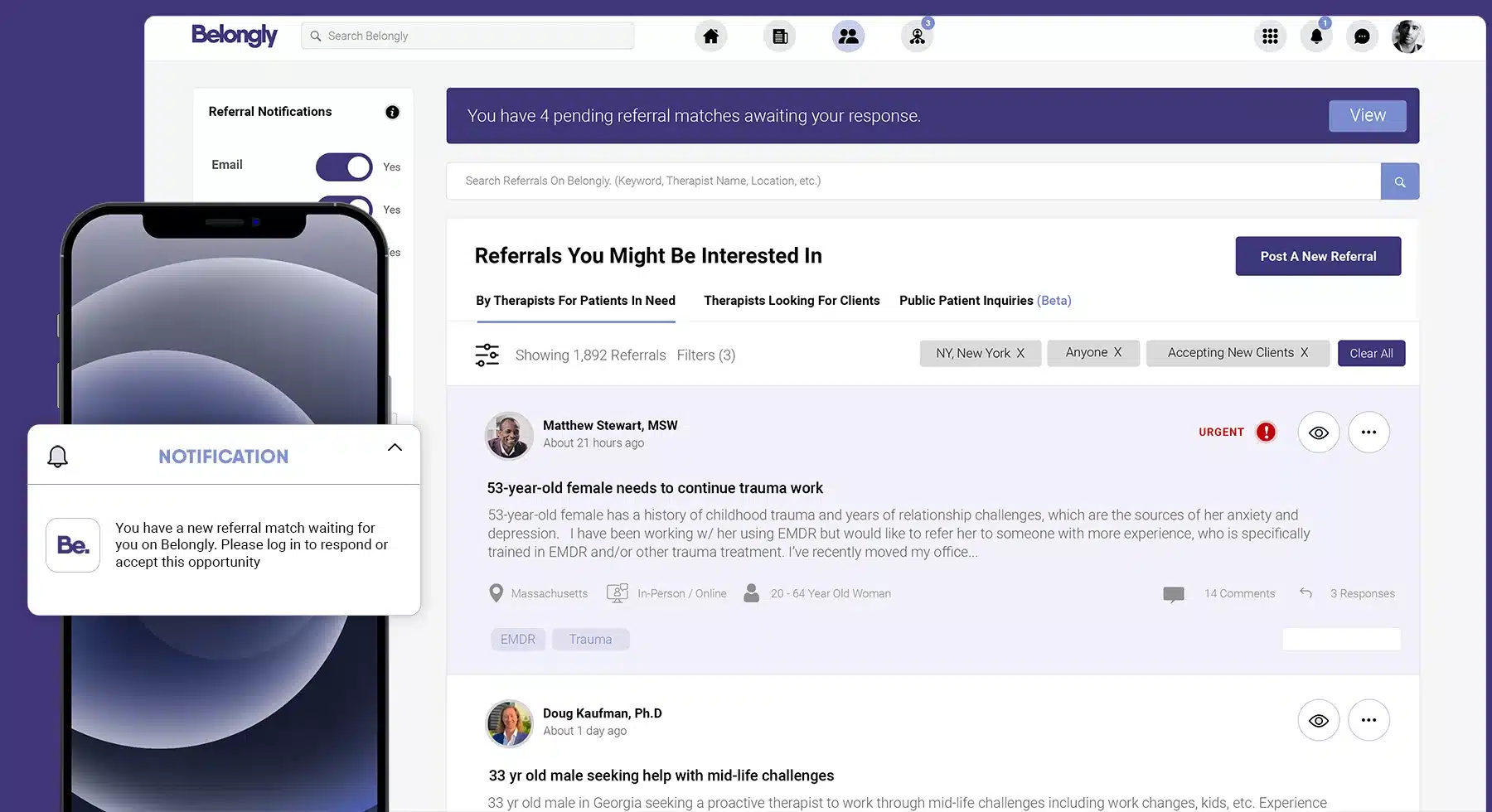We therapists are pros at taking care of others. It’s in our nature and the job description! However, constantly your personal life at the bottom of the priority list can lead to resentment and burnout.
Maintaining a work-life balance means giving equal priority to your personal needs and professional responsibilities. The balance occurs in the long run, not in the course of a single time period. There will be weeks or months that will naturally be more work-heavy due to clients in crisis, deadlines, or other factors. The trick is to make sure these periods are offset with personal time. How do you do that? Here are 5 tips for managing work-life balance as a therapist:
Set Boundaries
We preach about the importance of boundaries to our clients, but we are not always great at maintaining them for ourselves. A client is in crisis but can only meet outside of office hours, so you make an exception “just this once.” You vow not to “bring work home” with you but check your notifications every hour “just in case” a client needs you.
It’s okay to make an exception every once in a while, but chronically overextending yourself is likely to lead to exhaustion and burnout. Here are some tips for setting healthy boundaries between work and personal life:
- Establish specific hours for work and stick to them.
- Set reasonable expectations around your availability for after-hours communication and communicate these expectations to clients.
- Maintain a separate workspace.
- Use the “do not disturb” function on your phone.
- Say “no” to demands on your time that do not provide commensurate fulfillment.
Prioritize Self-Care
We all know that self-care is important, but it can be difficult to put this into practice when there are so many competing demands on our time! That’s why effective self-care requires a specific plan of action, including designating time in your schedule for activities like exercise, spending time with family, and mindfulness breaks. Make sure you also allot time for basics like sleep and meal planning/preparation. Remember, you can’t effectively take care of anyone else if you don’t first take care of yourself!
Use Tech Tools
Technology is often the biggest culprit when it comes to sabotaging work-life boundaries. In a world of smartphones and push notifications, it can be difficult to fully disconnect. However, technology can also help to streamline administrative tasks like scheduling, documentation, and billing. Put technology to work for you by using a practice management system like Simple Practice, AI-based tools for progress notes, and billing clearinghouses for insurance claims. For a detailed list of tech tools created specifically for therapists, click here.
Take time off
More than half of Americans don’t use their vacation time. Therapists may be even more likely to forgo time off, due to the responsibility they feel for their patients and the fact that for many of us, fewer clinical hours means less income. However, vacations are essential to maintaining a work-life balance. Taking time off can help you gain perspective on your cases and bring renewed energy and creativity to your work. And remember, vacations don’t have to break the bank. A long weekend away or a well-executed “staycation” can provide many of the same benefits as a trip to an exotic locale.
Maintain a support network
A therapist’s work is demanding and emotionally exhausting. Meeting regularly with colleagues for support and guidance can help you manage stress, process difficult cases, and gain perspective. Professional sites like Belongly help you connect with other therapists via a secure, HIPAA-compliant platform. You can share resources, give and receive referrals, and participate in peer consultation groups. A strong professional support system can also help to reinforce the importance of work-life balance, ultimately preventing burnout.
Keep Reading
Want more? Here are some other blog posts you might be interested in.










